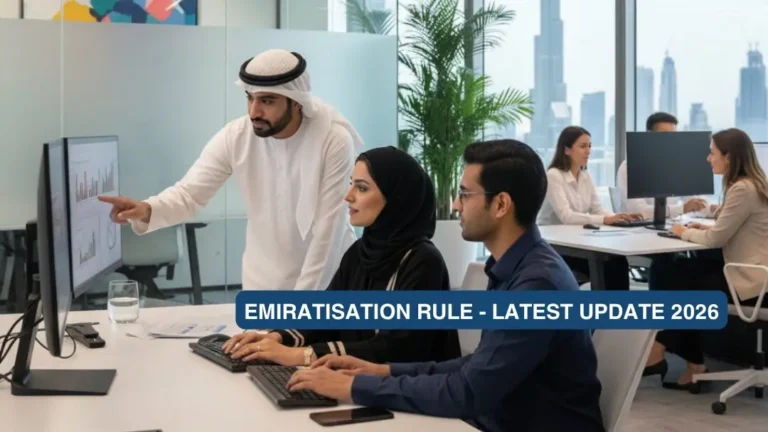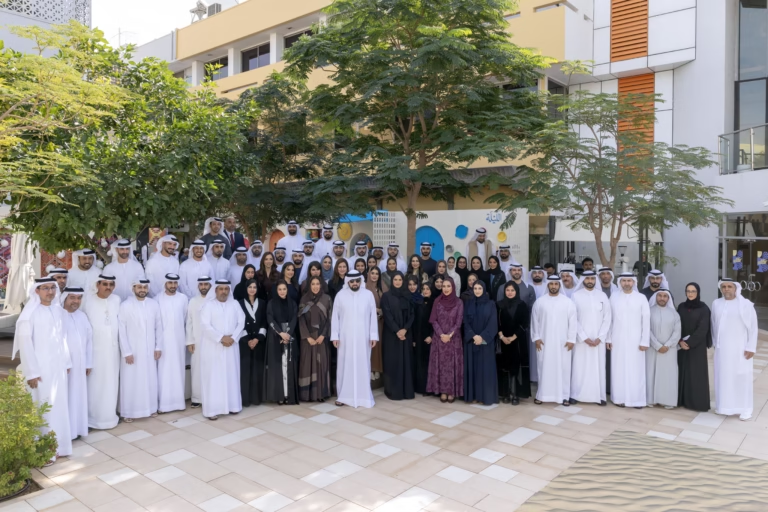
Several major banks in the United Arab Emirates have announced plans to increase their minimum balance requirements starting June 2025, a move that will significantly impact both residents and expatriates in the country. This policy shift comes amid broader economic adjustments and financial sector recalibrations in the post-pandemic era.
For individuals working in the UAE or planning to relocate to the Emirates, understanding these new banking requirements is crucial, as they directly affect personal finance management and employment considerations. This comprehensive guide examines what these changes mean, which banks are implementing them, and how you can adapt to these new financial thresholds.
Key Banks Implementing New Minimum Balance Requirements
The following major UAE banks have confirmed increased minimum balance requirements effective June 2025:
- Emirates NBD: Raising minimum balance from AED 3,000 to AED 5,000
- Abu Dhabi Commercial Bank (ADCB): Increasing from AED 2,500 to AED 4,000
- Dubai Islamic Bank (DIB): Moving from AED 3,000 to AED 5,000
- Mashreq Bank: Adjusting from AED 2,500 to AED 4,500
- First Abu Dhabi Bank (FAB): Raising from AED 3,000 to AED 5,000
Several other financial institutions are expected to follow suit in the coming months, making this a significant trend across the UAE banking sector.
Read more – Cases in Which an Employment Contract Ends in the UAE
- Burj2Burj Half Marathon Returns to Dubai with 13,700 Runners and a World-Class Finish
- I Lived in Dubai for 365 Days: An Honest Expat Review (From a London Expat)
- He Had ₹847, No Job & Broken English—Now He Earns 28,000 AED in Dubai!
Table of Contents
Understanding the Impact on Different Account Types
Salary Transfer Accounts
Salary transfer accounts, which are mandatory for most UAE employees under the Wage Protection System (WPS), will see varying changes:
- Standard salary accounts: Most banks are increasing minimum balance requirements by 40-60%
- Premium salary accounts: Higher thresholds often result in better benefits but require maintaining balances of AED 10,000-25,000
- Zero-balance salary accounts: Some banks still offer these for specific salary brackets, typically for those earning above AED 15,000 monthly
Regular Savings Accounts
Conventional savings accounts will be subject to stricter requirements:
- Average monthly balance must meet the new minimums
- Fee structures have been revised with most banks charging between AED 25-50 per month for falling below minimums
- Grace periods for new accounts typically remain at 2-3 months from account opening
Reasons Behind the Minimum Balance Increases
The banking sector’s decision to raise minimum balances can be attributed to several factors:
- Economic recalibration: Post-pandemic adjustment of banking practices
- Operational costs: Rising expenses in maintaining account infrastructure
- Financial inclusion balance: Banks seeking to maintain profitability while serving various customer segments
- Digital banking transition: Encouraging customers to shift to digital-only accounts with different fee structures
According to financial analysts at UAE Central Bank, these adjustments align with regional banking trends seen across the Gulf Cooperation Council (GCC) countries.
Exceptions and Special Considerations
Not all account holders will be affected equally by these changes. Several exceptions exist:
- Ladies’ banking accounts: Some banks maintain lower minimum requirements for women
- Youth accounts: Customers under 25 often enjoy reduced or waived minimum balance requirements
- Senior citizen accounts: Individuals over 60 may be exempt from these increases
- Priority banking clients: High-net-worth individuals with significant investments typically face no changes
Alternative Banking Options with Lower Requirements
For those concerned about meeting new minimum balance requirements, several alternatives remain available:
Digital-Only Banks
The rise of digital banking presents viable alternatives with typically lower balance requirements:
- NEO Bank UAE: Maintains AED 1,000 minimum balance requirement
- Digital First Banking (DFB): Zero minimum balance with minimum monthly transactions
- E-Dirham accounts: Government-linked accounts with minimal requirements for certain services
Credit Unions and Cooperative Banking Options
Less conventional banking alternatives include:
- Community credit societies: Often cater to specific professional groups with lower balance requirements
- Employer-negotiated banking packages: Many larger companies have special arrangements with banks
How These Changes Affect UAE Expatriate Workers
For the expatriate workforce, these changes have particular significance:
Employment Offer Considerations
- Salary packages should be evaluated with these new banking requirements in mind
- End-of-service benefits become more important as cash flow management becomes critical
Visa and Residency Implications
- Maintaining proper banking relationships remains essential for residency continuity
- Financial proof requirements for certain visa categories may be indirectly affected
Strategically Managing Your Banking Relationship
Consider these approaches to adapt to the new minimum balance requirements:
Consolidation Strategy
- Maintain fewer accounts with higher balances rather than multiple accounts with smaller amounts
- Leverage relationship banking benefits where primary account holders receive preferable terms
Negotiation Possibilities
- Long-term customers with good standing may request exemptions
- Employer-backed negotiations can sometimes yield better terms for employee groups
Timing Your Banking Activities
- Schedule major withdrawals after interest calculation dates
- Maintain higher balances on evaluation dates (typically month-end)
Legal Framework and Consumer Protection
The UAE Central Bank continues to regulate these changes to ensure consumer protection:
- Banks must provide 60-day notice before implementing minimum balance increases
- Clear communication regarding fee structures is mandated
- Customers have the right to close accounts without penalty during the notice period if they do not accept new terms
According to UAE Banking Federation guidelines, financial institutions must ensure transparency in all communications regarding account requirement changes.
Expert Perspectives
Financial analysts and labor experts provide mixed reviews of these changes:
“While higher minimum balances may present challenges for some segments of workers, they reflect the evolving economic landscape of the UAE banking sector. Consumers should view this as an opportunity to reassess their banking relationships and potentially explore more suitable alternatives.” — Financial Analyst, UAE Central Bank
“Expatriate workers, particularly those in lower wage brackets, will need to carefully plan their finances to accommodate these new requirements. Employers should consider these changes when structuring compensation packages.” — Labor Market Specialist, UAE Ministry of Human Resources
Preparing for the Changes: Practical Steps
As June 2025 approaches, account holders should:
- Review account statements to understand current balance patterns
- Compare banking packages across multiple institutions
- Consider consolidating accounts to maintain fewer, higher-balance relationships
- Evaluate digital banking alternatives with lower or no minimum requirements
- Speak with your employer about potential banking relationship benefits
FAQ: UAE Bank Minimum Balance Requirements
Will all banks implement these changes simultaneously?
No, while major banks have announced June 2025 implementation, smaller institutions may follow different timelines or adopt different threshold increases.
Can my employer help negotiate better banking terms?
Yes, many medium and large employers have special arrangements with partner banks that may provide exemptions or reduced minimums for their employees.
What happens if I temporarily fall below the minimum balance?
Most banks charge a monthly fee (ranging from AED 25-50) for accounts that fall below the minimum requirement. This fee is typically applied only after any applicable grace period.
Are there specific professions exempt from these requirements?
While there are no profession-specific exemptions, certain salary brackets and banking relationships may qualify for special consideration. Government employees sometimes receive preferential terms.
How do these changes affect my ability to send remittances abroad?
The changes do not directly affect remittance capabilities, but maintaining higher minimum balances may reduce available funds for regular remittances, requiring more careful financial planning.
Will these minimum balance requirements affect my visa status?
Not directly, but maintaining proper banking relationships remains important for overall financial stability during residency.
Can I open accounts in different banks to manage multiple lower balances?
While possible, this strategy may be counterproductive as it divides your funds and could result in multiple monthly fees if you fall below minimums across several accounts.
Conclusion
The upcoming increases in minimum balance requirements represent a significant shift in UAE banking practices that will require adaptation from both residents and expatriates. By understanding the changes, exploring available alternatives, and strategically managing banking relationships, individuals can navigate these new requirements effectively.
For workers considering employment in the UAE, these new banking thresholds should factor into financial planning and salary negotiations. Current residents should review their banking arrangements well before the June 2025 implementation date to avoid unexpected fees or complications.
Disclaimer: Banking policies are subject to change. This article provides general information and should not be construed as financial advice. Please consult with financial advisors or contact your bank directly for personalized guidance.







Pingback: Why Dubai’s Residential REITs Are Attracting Global Investors In 2025 - UAE Labour News
Pingback: Make It In The Emirates 2025: Incentives, Regulations & How To Participate - UAE Labour News